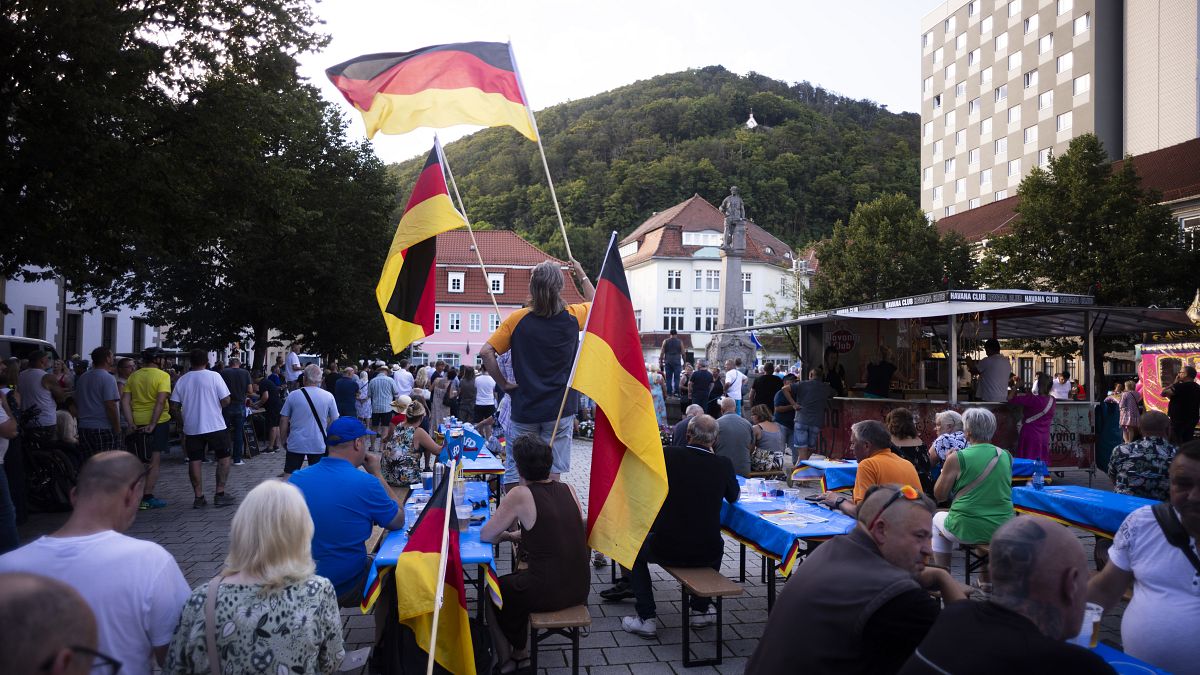The exodus of young people from the east German cities of Zittau and Görlitz, located in Saxony, has left behind abandoned houses and a struggling local economy. The upcoming September elections are expected to have a significant impact on the residents of these cities, especially considering the rise in support for the far-right Alternative for Germany (AfD) party. With the AfD and the far-left party Sahra Wagenknecht Alliance (BSW) potentially overtaking the centre-right Christian Democrats (CDU) in Saxony, concerns are growing among local businesses about the political landscape.
Local business owner Tuomo Neumann, who has chosen to stay in Zittau and run multiple establishments, highlights the challenges faced by the city, including a lack of industry and limited apprenticeship opportunities leading to a drain of young talent. The decline in various sectors such as healthcare and the overall dissatisfaction among residents have created a fertile ground for the rise of far-right sentiments in the region. With an increasing number of anti-government demonstrations and instances of political violence, many young people are choosing to leave in search of better opportunities.
The issue of far-right influence in cities like Zittau and Görlitz is a major concern for local residents and businesses. The rise of the AfD and the potential for a coalition with the BSW party raises fears about the future of public funding for initiatives and organizations that rely on government support. The outcome of the elections could determine the direction of policies related to healthcare, education, and infrastructure in the region. While some parties advocate for reforms and improvements in these areas, there is also a segment of the population that remains nostalgic about the pre-reunification era.
In Görlitz, another town facing similar challenges, residents and business owners express concerns about populist parties and the need for a clear stance against far-right ideologies. Despite recent positive developments in the city’s population and infrastructure, the unrest and support for the far-right remain puzzling to many observers. The influence of federal government policies and the portrayal of current issues in local politics add to the complexity of the situation, with blame often being directed towards immigrants and politicians.
As the September elections in Saxony approach, the importance of addressing underlying issues and finding sustainable solutions becomes more apparent. Local politicians from parties like the BSW emphasize the need for dialogue and peace over aggression and conflict, while also acknowledging the role of individual responsibility in shaping the future. The comparison between past migrations in the GDR era and current immigration patterns highlights the common desire for a better life and the potential for positive change through collaboration and understanding. Ultimately, the outcome of the elections will shape the fate of cities like Zittau and Görlitz, determining their path towards socio-economic recovery and political stability.











